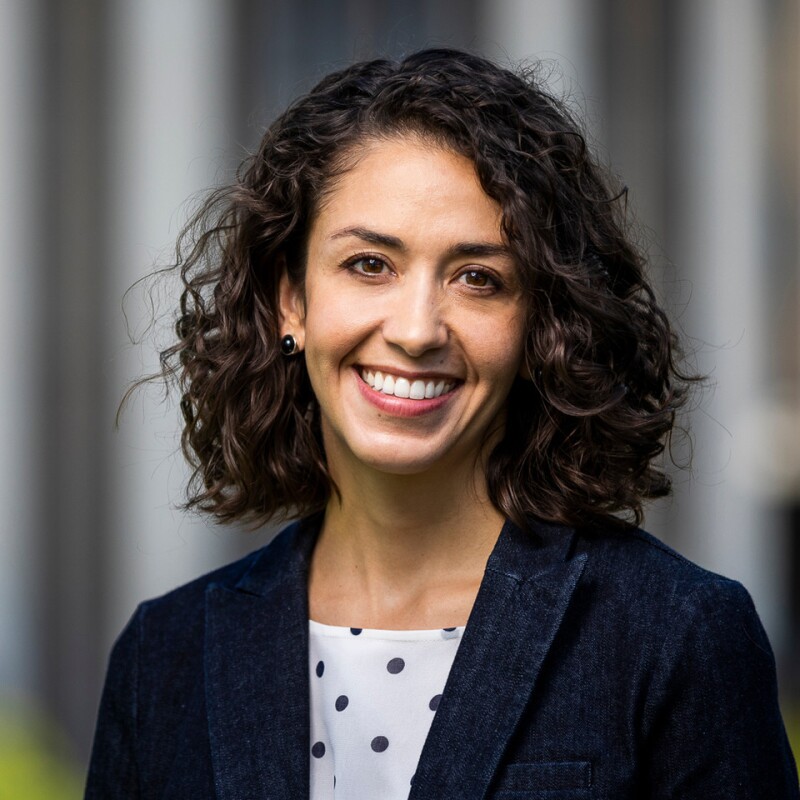Magnify is an LDS Living podcast where host Kathryn Davis and her guests discuss using their influence as followers of Jesus Christ to make a difference in the world. In the following excerpt from a recent episode, Kathryn talks with lawyer and Brigham Young University professor Carolina Núñez about the importance of emotional and physical proximity in the pursuit to love one another. This podcast excerpt has been edited for clarity.
Kathryn Davis: You shared some of your own experiences that you’ve had with neighborly love when you spoke at a BYU devotional a few years ago. I was so impressed with the story you shared about meeting women in an immigrant detention center in Dilley, Texas. Can you share a little bit about this experience and how that changed your perspective on the commandment to love your neighbor?

Carolina Núñez: I had been thinking about going to volunteer at this detention center. I thought, “I have some legal skills; I think I could help.” [But] to be honest, it just seemed overwhelming to me. [I was intimidated by] the idea of getting on a plane, . . . going to the border, . . . staying in some pretty uncomfortable lodging, and having to hear stories of trauma. . . . I knew that the women and children who were being detained at this detention center were fleeing violence in their countries and were seeking asylum in the United States.
[So] I’m super grateful to a colleague who said, “Let’s just do this. Let’s go and volunteer and see how it is.” . . .
I was shocked and deeply moved by the connection that I felt with these women and their children in this detention center. I would meet individually with women, and they would tell me their stories. And these are the stories of the worst moments of their lives. . . . I felt so connected to them, even though I’ve been fortunate . . . to not have been plagued by the kind of gang violence and sexual violence—and just horror—that some of these women experienced. But I nonetheless felt connected to them [as they were] sitting just a couple of feet in front of me.
As I watched them cry, and as I watched them hold their babies, they were like me, even though they weren’t. I felt so connected to them. I knew that they loved their families in the same way that I love mine, and that they had the same goals for their families that I have for mine. And I . . . didn’t feel that until I was sitting in front of them, until I was crying with them, until I was counseling with them. . . . I had to be there to really feel that.
KD: So there’s something about physical presence?
CN: Absolutely. And I think the parable of the good Samaritan includes that, right? The Samaritan didn’t just say, “Hey, here’s some money. I hope it helps you.” . . . He actually reached down and basically picked him up, right? A true physical embrace with a stranger!
KD: I love that [in your BYU address] you shared the Spanish translation of the phrase “love of neighbor:” . . . amor al prójimo, which translates to “love of the one who is in proximity.”
CN: I think amor al prójimo is a powerful statement. Because it’s not just that we must love the person who is next to us, but we must get close to the person we want to love. If we are to love people who are different from us, we’re going to have to find a way to get close to people who are different from us. And that doesn’t just happen by coincidence, right? . . . You’re going to have to make an effort; you’re going to have to make a decision. That’s what I like about the Spanish translation of “love of neighbor”: . . . it suggests both that there’s something about being together and also that we’re going to have to be near . . . people who are different from us to really love in the way that the Savior calls us to love.
Carolina Núñez is a professor at Brigham Young University’s J. Reuben Clark Law School and cofounder of the school’s Refugee and Immigration Initiative.
Find the Magnify podcast on all major streaming platforms or by visiting magnifythegood.com.

